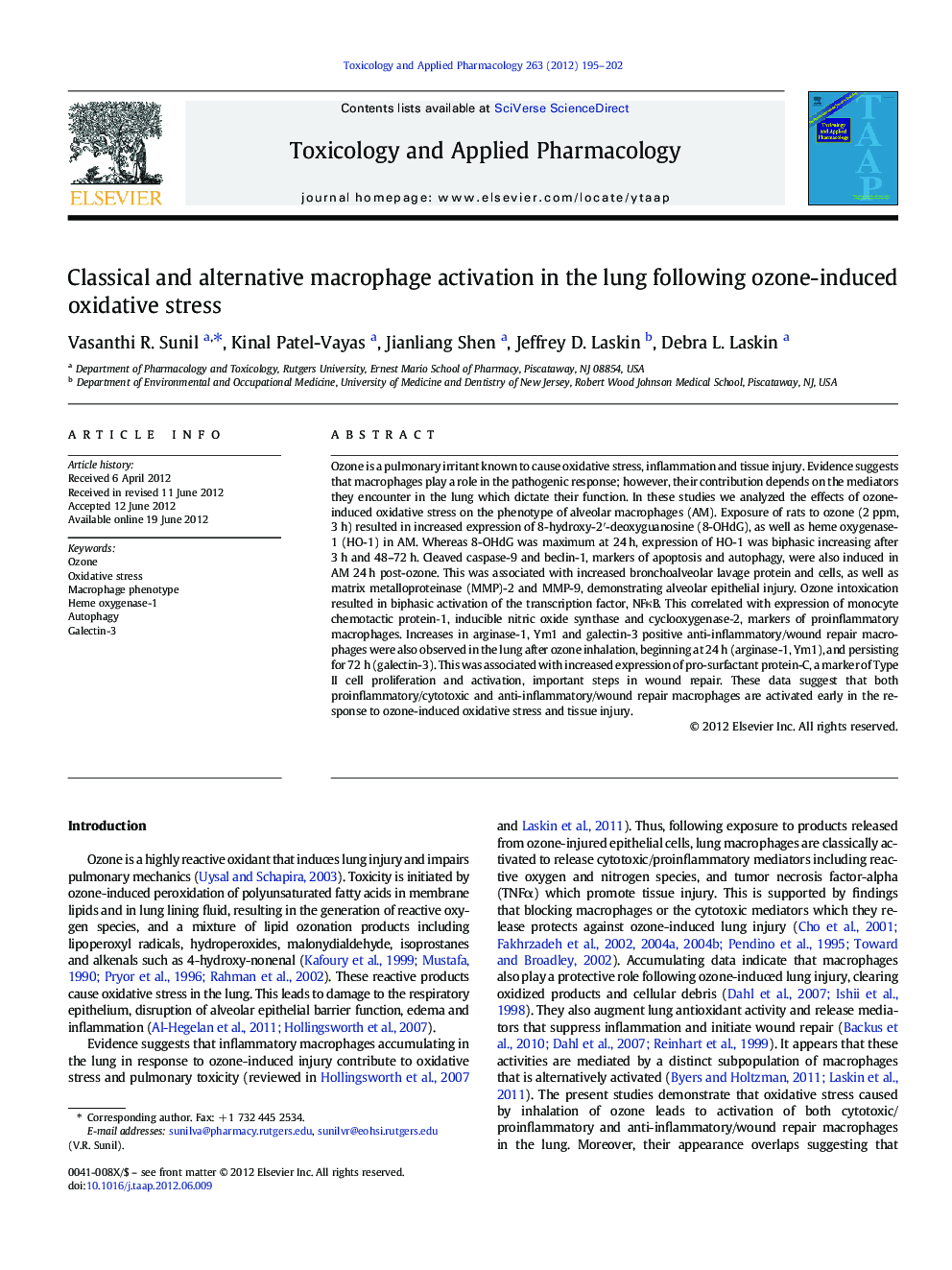| کد مقاله | کد نشریه | سال انتشار | مقاله انگلیسی | نسخه تمام متن |
|---|---|---|---|---|
| 2569179 | 1128515 | 2012 | 8 صفحه PDF | دانلود رایگان |

Ozone is a pulmonary irritant known to cause oxidative stress, inflammation and tissue injury. Evidence suggests that macrophages play a role in the pathogenic response; however, their contribution depends on the mediators they encounter in the lung which dictate their function. In these studies we analyzed the effects of ozone-induced oxidative stress on the phenotype of alveolar macrophages (AM). Exposure of rats to ozone (2 ppm, 3 h) resulted in increased expression of 8-hydroxy-2′-deoxyguanosine (8-OHdG), as well as heme oxygenase-1 (HO-1) in AM. Whereas 8-OHdG was maximum at 24 h, expression of HO-1 was biphasic increasing after 3 h and 48–72 h. Cleaved caspase-9 and beclin-1, markers of apoptosis and autophagy, were also induced in AM 24 h post-ozone. This was associated with increased bronchoalveolar lavage protein and cells, as well as matrix metalloproteinase (MMP)-2 and MMP-9, demonstrating alveolar epithelial injury. Ozone intoxication resulted in biphasic activation of the transcription factor, NFκB. This correlated with expression of monocyte chemotactic protein‐1, inducible nitric oxide synthase and cyclooxygenase‐2, markers of proinflammatory macrophages. Increases in arginase-1, Ym1 and galectin-3 positive anti-inflammatory/wound repair macrophages were also observed in the lung after ozone inhalation, beginning at 24 h (arginase-1, Ym1), and persisting for 72 h (galectin-3). This was associated with increased expression of pro-surfactant protein-C, a marker of Type II cell proliferation and activation, important steps in wound repair. These data suggest that both proinflammatory/cytotoxic and anti-inflammatory/wound repair macrophages are activated early in the response to ozone-induced oxidative stress and tissue injury.
► Lung macrophages are highly sensitive to ozone induced oxidative stress.
► Ozone induces autophagy and apoptosis in lung macrophages.
► Proinflammatory and wound repair macrophages are activated early after ozone.
► Oxidative stress may contribute to regulating macrophage phenotype and function.
Journal: Toxicology and Applied Pharmacology - Volume 263, Issue 2, 1 September 2012, Pages 195–202